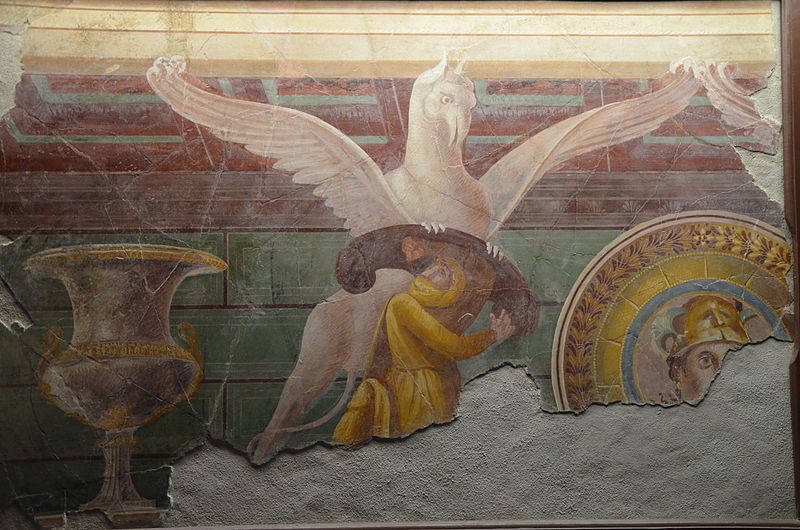The claim is often made that the Bible is nothing more than a collection of Ancient Near Eastern (ANE) myths cobbled together. Last week, we learned that the Bible preserves a completely unique outlook on life. While the cultures all around Israel saw the gods and the world in a continuity, the Old Testament understood God to be transcendent and completely outside of His creation. These two different mindsets are completely opposed to one other. The only way for Israel alone to think in such a manner is if God revealed Himself to them, just as the Old Testament said He did.
In part 2 of this series, we will look at a second feature that separates the Old Testament from other Ancient Near Eastern literature. This involves history reporting. Other ANE cultures saw little value in accurately recording history because they viewed history as cyclical. Rather than being littered with non-repeatable events, the past was seen as part of a circle that would come around again someday. That is why omens and superstitions were of such great importance. If something happened one way it would surely happen that way again. Also, because they viewed the world in a continuity (the gods are nature, nature is humanity, and humanity is divine) they saw no reason to accurately portray history. Rather, they believed that through their writings they could influence what would happen again when the circle of history came full circle. That is why many ANE cultures would downplay or even omit losses while exaggerating victories and accomplishments. In the world of the ANE there was little value in historical reporting and the result is very little in actual historical data.
The Old Testament, however, had a completely different view of history. They saw history as linear. The past was filled with non-repeatable events, some of which prominently feature the Lord’s hand. It is through God’s intervening in history that humanity can know anything about God. Therefore, it was important that history be recorded correctly. After all, if one can learn about God only through His revelation and actions in history, then it had better be recorded right for future generations to learn about God! This meant that the Israelites, in contrast to their pagan neighbors, had good reasons to record history and to do so accurately.
Some scholars and skeptics claim that the Old Testament, despite having good reason to report history accurately, could not possibly record real history because the Old Testament contains miracles and examples of divine intervention. However, it is not sound to claim that the Bible cannot be accurate because it contains miracles. This simply assumes that miracles do not happen. Additionally, miracles and interventions from God should be expected. If there are no miracles or acts of divine intervention, then what is left is a deistic god who is unconcerned with his creation and refuses to interfere in the affairs of mankind. Such a god would not send his son to save humanity from sin and death. Indeed, such a god would hardly be worth believing in. Indeed, it would make little difference whether or not such a god existed or whether anyone believed in him. But the God of the Bible is intensely personal and cares deeply about the affairs of mankind. Therefore, based on what Scripture reveals about God, it is no surprise that the Old Testament is filled with miracles and accounts of divine intervention.
Since Israel had good reason to accurately record history and since miracles do not make the Bible’s history untenable, the physical evidence should confirm the Bible’s account of history. It is clear that science, when interpreted through the lens of Scripture, confirms the Bible’s account of origins in Genesis 1-11. But the physical evidence also confirms other portions of Scripture. A few examples out of many will suffice. Isaiah 20:1 makes a passing reference to an Assyrian king named Sargon. Although his name did not appear on any king lists, his existence was confirmed when his palace and library was unearthed. Scripture records that Belshazzar was the last king of Babylon but history seemed to say that Nabonidus was the final king. Historical research finally caught up with the Bible and the biblical account was vindicated. In Jericho, a layer of ruin shows the walls broken down and the city burned, just as Joshua records. Furthermore, Scripture records that the siege was a short period of time and that it took place at harvest. Baskets full of charred wheat show both of these statements accurate.
Although many gaps exist due to the patchy, limited nature of archaeology, archaeology and historical studies have never discredited any of the Bible’s history. While much of it remains to be verified, it is telling that not one historical statement in Scripture has been proven to be false. The reason for this is that the Bible is God’s Word, carefully recorded for us and authored by the God (2 Timothy 3:16) who does not lie (Titus 1:2).
In writing this article, I am indebted to the work of John N. Oswalt in The Bible Among the Myths (Zondervan: 2009).





